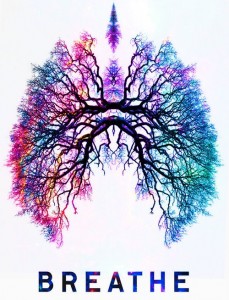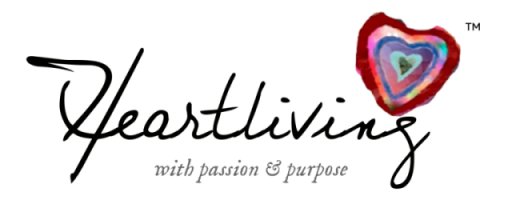by Cynthia Bischoff | Jun 24, 2018 | Heartliving
 Your soul’s essence is connectedness, and it thrives on relationship. Ancient people knew this instinctively and recognized that their survival depended upon each other—-they needed to cooperate to thrive in their world.
Your soul’s essence is connectedness, and it thrives on relationship. Ancient people knew this instinctively and recognized that their survival depended upon each other—-they needed to cooperate to thrive in their world.
When we understand that we are related to every form of life on this planet and we become a partner with the Universe, we can then begin to act on behalf of our world.
So whether it is your co-worker, partner, or relative–or the stranger in another country–you will respond differently to others when you feel a sense of connectedness rather than separation. In fact, when I teach in Japan, I have learned that it is believed that “all pain is a result of separation”–whether that separation occurs in your community, family, or in your body.
When we remember the value of oneness and cooperation, we begin to look at one another differently. We find that our lives become calmer, and we are less attached to specific outcomes.
As a result, we can decide to give up arguing—-one argument at a time.
We can choose to be peaceful rather than right.
by Cynthia Bischoff | Jun 17, 2018 | Heartliving
Today, I was reminded of one of my favorite Native American legends and wanted to share it with you:
One evening an old Cherokee chief told his grandson about life.
He said, “My son, a fight is going on inside me. It is a terrible fight and it is between two wolves.”
“One is evil–he is anger, envy, sorrow, regret, greed, arrogance, self-pity, guilt, resentment, inferiority, lies, false pride, superiority, self-doubt, and ego.”
“The other is good–he is joy, peace, love, hope,
serenity, humility, kindness, benevolence, empathy, generosity, truth, compassion, and faith.”
“This same fight is going on inside you–and inside every other person, too.”
The grandson thought about it for a minute and then asked his grandfather, “Which wolf will win?”
The old chief simply replied, “The one you feed.”
-A Cherokee Legend-
by Cynthia Bischoff | Jun 3, 2018 | Heartliving
 Join me on August 14, 2018, from 6:00-8:00 p.m., at Sentara Virginia Beach General Hospital, Virginia Beach, VA, for a new seminar, Healing Your Heart From The Inside Out. This two-hour seminar will guide you through powerful principles to help heal your heart! I will help you contribute to your own excellent heart health by understanding:
Join me on August 14, 2018, from 6:00-8:00 p.m., at Sentara Virginia Beach General Hospital, Virginia Beach, VA, for a new seminar, Healing Your Heart From The Inside Out. This two-hour seminar will guide you through powerful principles to help heal your heart! I will help you contribute to your own excellent heart health by understanding:
- The power of a “whole health system” approach
- How changing your perspective can change your heart
- How emotional states have medical consequences
- How you can build your immune system
- How self-awareness can help you de-stress
- How your biography becomes your biology
- How changing your story can heal your heart!
And so much more!
Don’t miss this engaging and informative seminar, sponsored by Deepak Talreja, MD, Cardiovascular Associates!
If you’re ready to improve your life? Click: Register
by Cynthia Bischoff | Apr 15, 2018 | Heartliving
 In order to manifest your greatest potential, it is necessary to have effective boundaries—to know where you begin and end; to do what you wish to do and not what you believe is expected of you (something that often creates resentment); to give with real love and not because giving is expected. In coaching, I sometimes encounter what I call “common boundary myths” among my clients. Do any of these ideas seem familiar to you? Myth #1: If I set boundaries, I will hurt others. If you set boundaries, you may fear that your limits will hurt someone else, particularly someone who seems to really need you. For example, let’s say a friend needs you to do a favor for her—but this favor greatly impacts your plans for free time which you have very little of and desperately need for your own balance. You are kind to this friend and often help her. In reality, appropriate boundaries don’t control or hurt anyone. Saying no to this person who is responsible for getting her own needs met really doesn’t hurt her. She may have to seek elsewhere to have her needs met, but the question is more for you: Are you okay not being the one who is rescuing or helping her? Are you okay not being the one who is needed? Often, poor boundaries result when a person has a need to feel needed or to be a rescuer of others. Myth #2: If I set boundaries, I am being selfish. One of my clients indicated that she had a deep-seated fear of being selfish, of being interested in her own concerns over those of others. Her mother had instilled in her a belief that putting herself last was important if she wished to be loving and kind. Interestingly, having appropriate boundaries actually increases our ability to care for others. When we give with full awareness and conscious choice, we value ourselves and the other person in the process. We make a choice to give because it is what we want to do, not what we believe we must do. If a lack of boundaries causes us to mismanage our own energy, our own soul, then saying no is an important way to protect ourselves and each other. Myth #3: If I set boundaries, I may be rejected. Often we participate in “people pleasing” as a way to be loved. We may fear that we are not nice enough and that, as a result, someone may reject or leave us. This can create a false presence in that we are presenting one way and yet feeling another. We may even end up feeling resentful. Having good boundaries with others is a necessary and natural component in all effective relationships.
In order to manifest your greatest potential, it is necessary to have effective boundaries—to know where you begin and end; to do what you wish to do and not what you believe is expected of you (something that often creates resentment); to give with real love and not because giving is expected. In coaching, I sometimes encounter what I call “common boundary myths” among my clients. Do any of these ideas seem familiar to you? Myth #1: If I set boundaries, I will hurt others. If you set boundaries, you may fear that your limits will hurt someone else, particularly someone who seems to really need you. For example, let’s say a friend needs you to do a favor for her—but this favor greatly impacts your plans for free time which you have very little of and desperately need for your own balance. You are kind to this friend and often help her. In reality, appropriate boundaries don’t control or hurt anyone. Saying no to this person who is responsible for getting her own needs met really doesn’t hurt her. She may have to seek elsewhere to have her needs met, but the question is more for you: Are you okay not being the one who is rescuing or helping her? Are you okay not being the one who is needed? Often, poor boundaries result when a person has a need to feel needed or to be a rescuer of others. Myth #2: If I set boundaries, I am being selfish. One of my clients indicated that she had a deep-seated fear of being selfish, of being interested in her own concerns over those of others. Her mother had instilled in her a belief that putting herself last was important if she wished to be loving and kind. Interestingly, having appropriate boundaries actually increases our ability to care for others. When we give with full awareness and conscious choice, we value ourselves and the other person in the process. We make a choice to give because it is what we want to do, not what we believe we must do. If a lack of boundaries causes us to mismanage our own energy, our own soul, then saying no is an important way to protect ourselves and each other. Myth #3: If I set boundaries, I may be rejected. Often we participate in “people pleasing” as a way to be loved. We may fear that we are not nice enough and that, as a result, someone may reject or leave us. This can create a false presence in that we are presenting one way and yet feeling another. We may even end up feeling resentful. Having good boundaries with others is a necessary and natural component in all effective relationships.
by Cynthia Bischoff | Apr 8, 2018 | Heartliving
 Your breathing patterns reflect your engagement with your world. As a certified Breathwork practitioner, I was trained to evaluate a person’s breathing patterns, understanding that the “in-breath” is considered “our will” (our connection with life) and the “out-breath” (or exhale) is considered to represent our relationship to God’s will (the process of surrendering and letting go). Interestingly when a person is anxious or trying to control life, he or she typically has a short exhale pattern.
Your breathing patterns reflect your engagement with your world. As a certified Breathwork practitioner, I was trained to evaluate a person’s breathing patterns, understanding that the “in-breath” is considered “our will” (our connection with life) and the “out-breath” (or exhale) is considered to represent our relationship to God’s will (the process of surrendering and letting go). Interestingly when a person is anxious or trying to control life, he or she typically has a short exhale pattern.
Throughout the day, check in with your breathing. Is it shallow and tight? Are you tense, angry, anxious, or relaxed? If so, it is most likely reflected in your breathing. You might even be holding your breath as a way not to feel your emotions, particularly if they are negative.
Your breathing serves to connect you with yourself and others, so that not breathing fully can be an unconscious defense mechanism for disconnecting from emotions you’d rather not feel. Even though shallow breathing can lessen your ability to feel your emotions, it can also repress them so that you create a pressure cooker of emotions internally, creating dis-ease in the body.
To promote better health:
- Check in with your breathing periodically throughout the day. Are you taking short, shallow breaths or is your breathing deep and relaxed?
- Decide what you have going on emotionally and how does your breathing at that moment might reflect this?
- If you realize that your breathing is shallow, take deeper breaths and check in with how you are feeling.
- Are you able to expand the lower abdomen as you breathe in, opening the lower chakras with the breath? (A chakra is an energy center in the body. My energy medicine teacher, Caroline Myss, suggested that all disease originates in blockages in the first 3 chakras.)
With every inhalation, mentally reinforce that you are opening your body to a healthy flow of energy. The dance of your breathing will tell you much about your relationship to life!
by Cynthia Bischoff | Mar 18, 2018 | Heartliving
Tremendous power exists in the present moment, and there are three magic words I use in my coaching to remind you that today is a new day and therefore new possibilities exist. You don’t have to drag your history along with you! Watch this video to learn more.
 Your soul’s essence is connectedness, and it thrives on relationship. Ancient people knew this instinctively and recognized that their survival depended upon each other—-they needed to cooperate to thrive in their world.
Your soul’s essence is connectedness, and it thrives on relationship. Ancient people knew this instinctively and recognized that their survival depended upon each other—-they needed to cooperate to thrive in their world.


 In order to manifest your greatest potential, it is necessary to have effective boundaries—to know where you begin and end; to do what you wish to do and not what you believe is expected of you (something that often creates resentment); to give with real love and not because giving is expected. In coaching, I sometimes encounter what I call “common boundary myths” among my clients. Do any of these ideas seem familiar to you?
In order to manifest your greatest potential, it is necessary to have effective boundaries—to know where you begin and end; to do what you wish to do and not what you believe is expected of you (something that often creates resentment); to give with real love and not because giving is expected. In coaching, I sometimes encounter what I call “common boundary myths” among my clients. Do any of these ideas seem familiar to you?  Your breathing patterns reflect your engagement with your world. As a certified Breathwork practitioner, I was trained to evaluate a person’s breathing patterns, understanding that the “in-breath” is considered “our will” (our connection with life) and the “out-breath” (or exhale) is considered to represent our relationship to God’s will (the process of surrendering and letting go). Interestingly when a person is anxious or trying to control life, he or she typically has a short exhale pattern.
Your breathing patterns reflect your engagement with your world. As a certified Breathwork practitioner, I was trained to evaluate a person’s breathing patterns, understanding that the “in-breath” is considered “our will” (our connection with life) and the “out-breath” (or exhale) is considered to represent our relationship to God’s will (the process of surrendering and letting go). Interestingly when a person is anxious or trying to control life, he or she typically has a short exhale pattern.